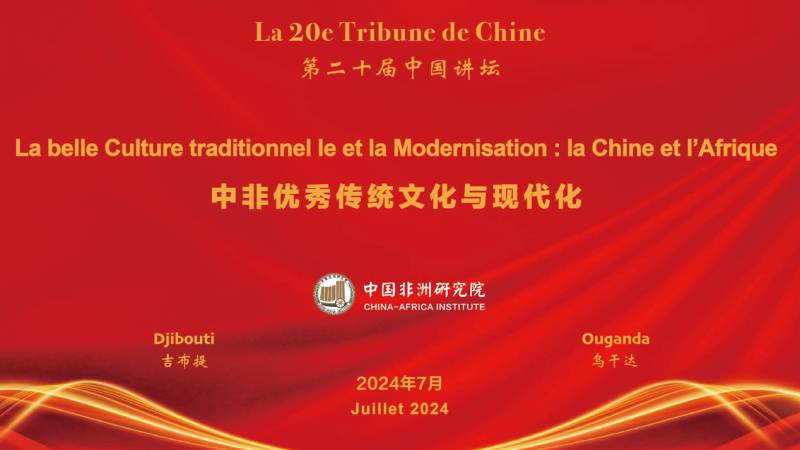
The 20th China Lecture "Fine Traditional Culture and Modernization: China and Africa" was held by China-Africa Institute (CAI) at the National Library and Archives of Djibouti on July 1, 2024.
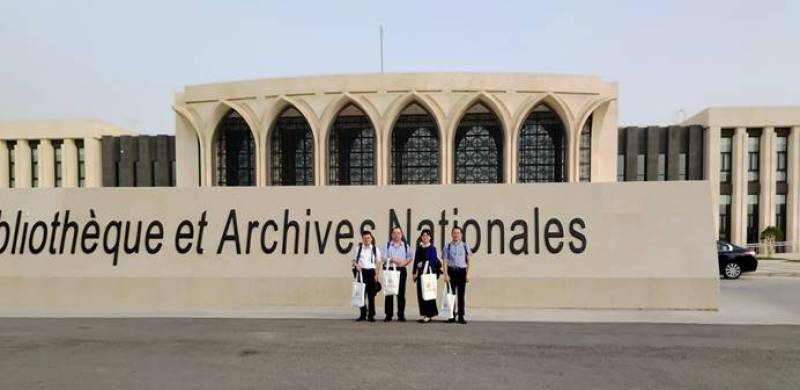
National Library and Archives of Djibouti (Bibliothèque et Archives Nationales)
The National Library and Archives of Djibouti is located in Balbala, a southern suburb of Djibouti City. It covers a land area of 30,000 square meters, including a general floor area of 16,600 square meters. It was China-aid project and constructed by Yunnan Construction and Investment Holding Group Co.,LTD. It is a flagship project of the China-Djibouti cooperation under the framework of the Forum on China-Africa Cooperation (FOCAC). President Ismaïl Omar Guelleh of Djibouti described it as "privileged instruments of information, education and training for the service of the people", and "brings to the duty of memory which is at the very center of the country’s history".
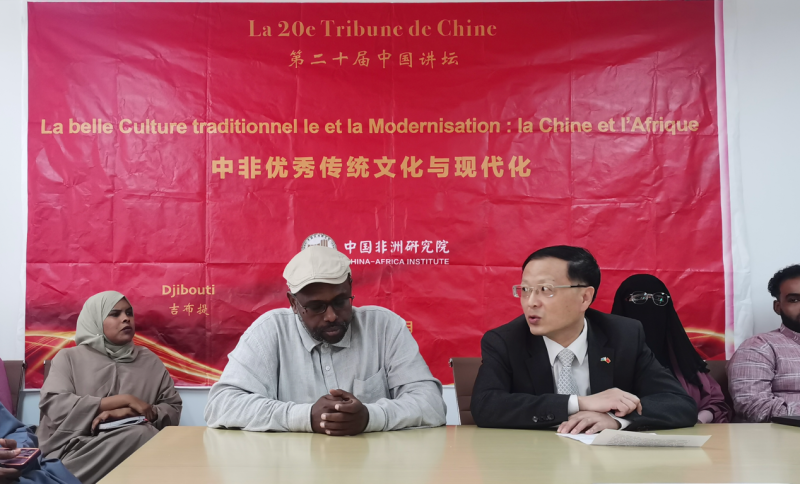
Ambassador Hu Bin (front right) addressing the lecture
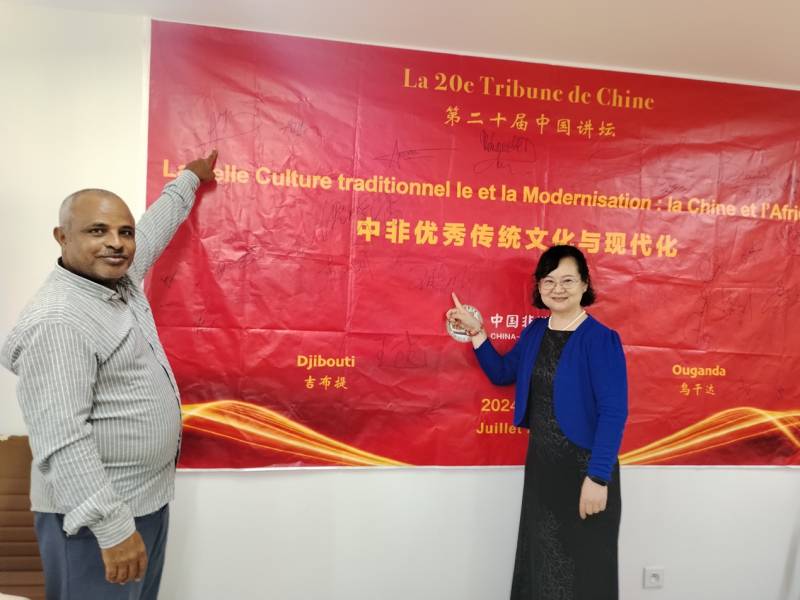
Ali Mohamed Dato (left) and Prof. Wang Xiaoming
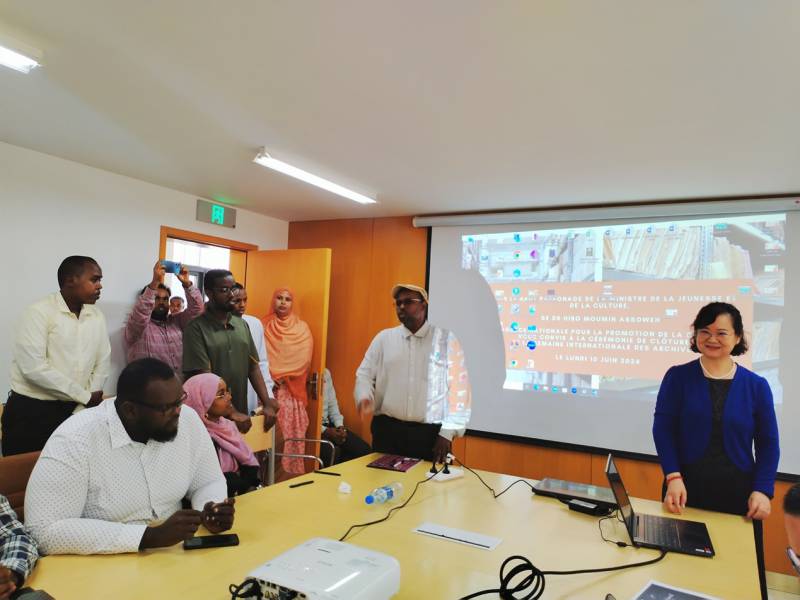
Prof. Wang Xiaoming is moderating the lecture
The 20th China Lecture was addressed by Chinese Ambassador to Djibouti Hu Bin, and moderated by Professor Wang Xiaoming, Vice President of the CAI. Ali Mohamed Dato, Djiboutian Presidential Adviser for Youth Affairs attended the lecture. The event drew more than 80 participants including officials from the Ministry of Foreign Affairs of Djibouti, scholars and experts from the University of Djibouti (UD) and the National Library and Archives of Djibouti.
In his speech, H.E.Ambassador Hu Bin pointed out that culture is the foundation and driving force of development and modernization. Both China and Djibouti boast rich and vibrant culture, and both are committed to achieving modernization and sustainable development that align with their own cultural characteristics and national conditions. They are both advocates of cultural exchange and development cooperation, upholding that mutual learning among civilizations will propel common prosperity.
H.E. Ambassador Hu said that in 2023, Chinese President Xi Jinping proposed the Global Civilization Initiative (GCI), emphasizing on the joint advocacy of respecting the diversity of civilizations, valuing the inheritance and innovation of civilizations, and strengthening international communication and cooperation in culture. We are glad to see that the GCI has gained support from an increasing number of countries, including Djibouti. Recently, the United Nations General Assembly unanimously adopted a resolution proposed by China to designate June 10 as the International Day for Dialogue among Civilizations. What is gratifying is that Djibouti is also a proposer of this resolution which states that "all cultures and civilizations contribute to the enrichment of humankind, and encouraging tolerance, peaceful coexistence, respect, dialogue and cooperation among different cultures, civilizations and peoples in order to promote international peace and security, human welfare, freedom and progress everywhere".
Today's lecture is a vivid illustration of China-Djibouti inter-civilization dialogue and an effective move to push forward the implementation of this resolution and the GCI. I believe that scholars from China and Djibouti will share their valuable experiences, explore ways of cooperation and exchange views on the interaction of culture and modernization at today's lecture.
H.E. Ambassador Hu Bin said that a new meeting of the Forum on China-Africa Cooperation (FOCAC) will be held in autumn in Beijing, which will open a new chapter for fostering solidarity, cooperation, and common development between China and Africa. At this new starting point, China is willing to deepen cultural exchanges and development cooperation with Djibouti, pushing China-Djibouti strategic partnership to a new level, improving the well-being of the two peoples, and making greater contributions to world peace and development.
The CAI delegation member Li Wengang and Shen Xiaolei delivered keynote speeches respectively on "Traditional Chinese Culture and Chinese Modernization" and "African Traditional Culture and African Modernization."
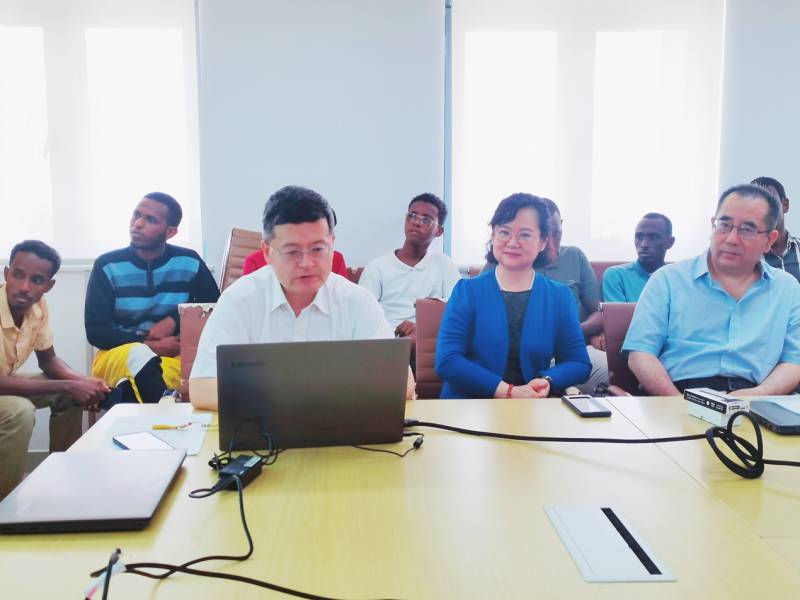
Li Wengang is delivering a speech
Li Wengang pointed out that the profound and extensive connotations of traditional Chinese culture cover a wide range of subjects such as philosophy, social systems, morality and ethics, literature and art, scientific and technology. It is an integration of Chinese people’s wisdom and spirit over thousands of years, and reflects the aspirations of the Chinese spirit and moral character. Therefore, it has significant implications for people in modern Chinese society.
He believes that the fine traditional Chinese culture is not only the soul and prop of our nation, but also has global significance. It is the root of Chinese civilization and the source for building cultural confidence in modern China. Inheriting and developing fine traditional Chinese culture is of great importance for strengthening national confidence and promoting socialist culture. It builds a solid foundation for the development of Chinese modernization. The fine traditional Chinese culture endows Chinese modernization with distinct Chinese characteristics, vise versa Chinese modernization injects new vitality into fine traditional Chinese culture.
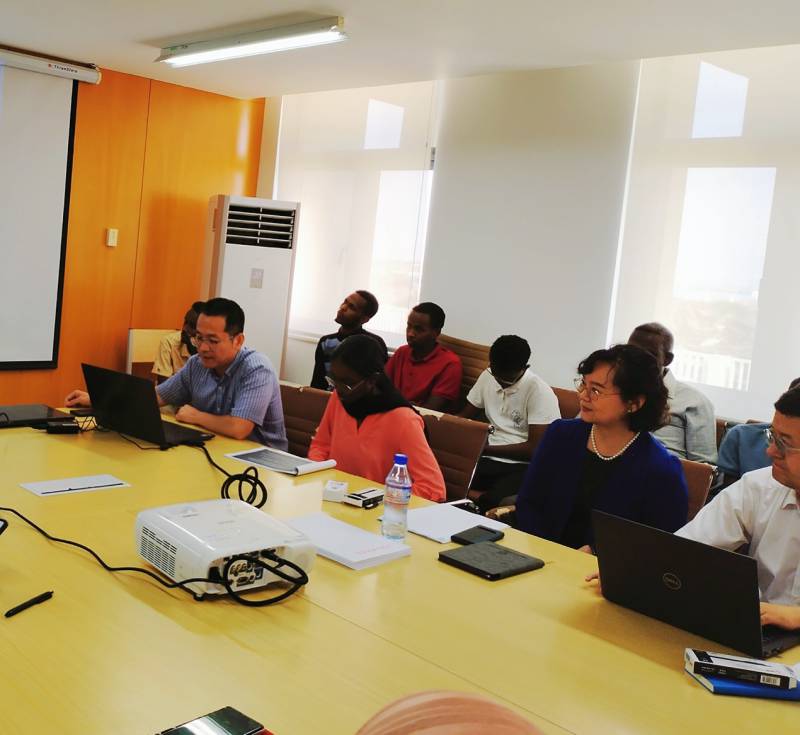
Shen Xiaolei is delivering a speech
Shen Xiaolei underlined that African traditional culture emphasizes harmony, unity, humanism, collectivism, respect for elders, gender equality and nature protection. This includes Ubuntu, Pan-Africanism, shared values and other thoughts. Fine traditional African culture plays a positive role in African modernization, helping African countries explore their own paths to modernization while promoting the modernization of political, economic and national governance in Africa. While exploring to their own paths to modernization, African countries should also learn from other countries’ experience so as to achieve integrated and independent modernization.
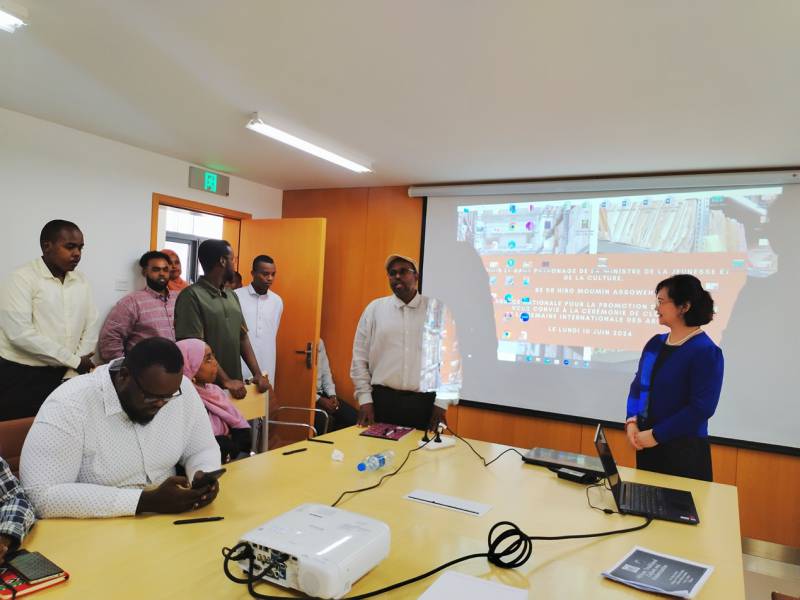
Doualeh is making comments
Mohamed Houssein Doualeh,head of the Djibouti Ministry for Youth and Culture made comments. He said, the 20th China Lecture took place at the China-aided National Library and Archives of Djibouti, which highlighted the friendly ties between China and Djibouti. Traditional culture plays a significant role in the development of modernization. Today’s lecture will help strengthen cultural exchanges and mutual learning of modernization experiences between China and Djibouti. He hopes to push forward communication and cooperation with the CAI in the future.
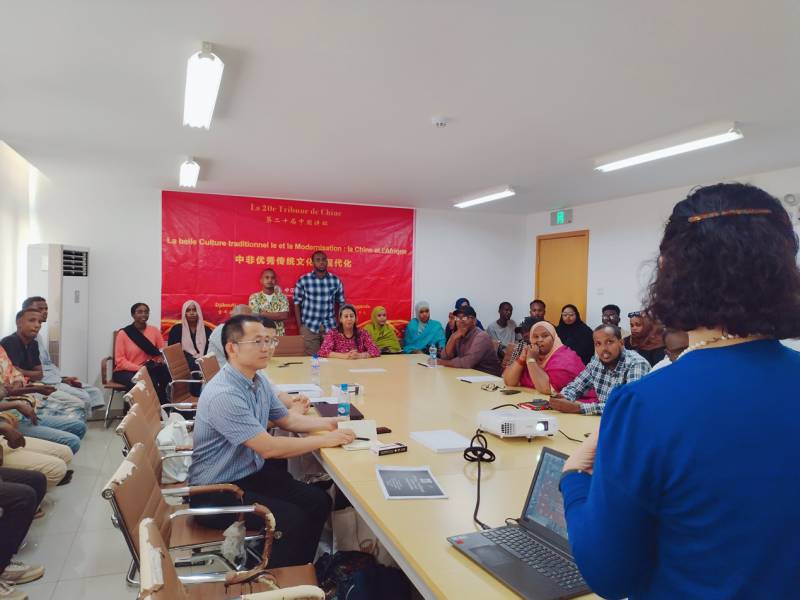
Participant at the lecture
During the Q&A session, Chinese scholars answered questions from students of the University of Djibouti, with regard to similarities between Chinese and African cultures and the treatment of the Traditional Chinese Medicine (TCM). The Djiboutian students displayed their great interest in Chinese culture, and made inquiries about studying in China. Prof. Wang Xiaoming, who has worked for years at the University of Chinese Academy of Social Sciences (UCASS) provided detailed information about African students studying in China and the admission policy of UCASS.
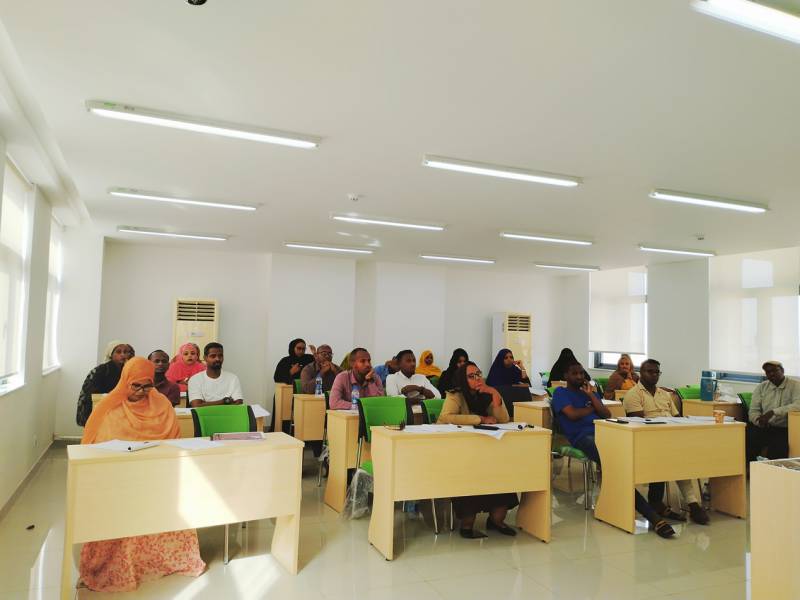
Sub-venue of the 20th China Lecture
In addition, a sub-venue was temporarily set up in next-door classroom for a group of African students who happened to just finish a lecture at the National Library and Archives of Djibouti and wished to attend the China Lecture.
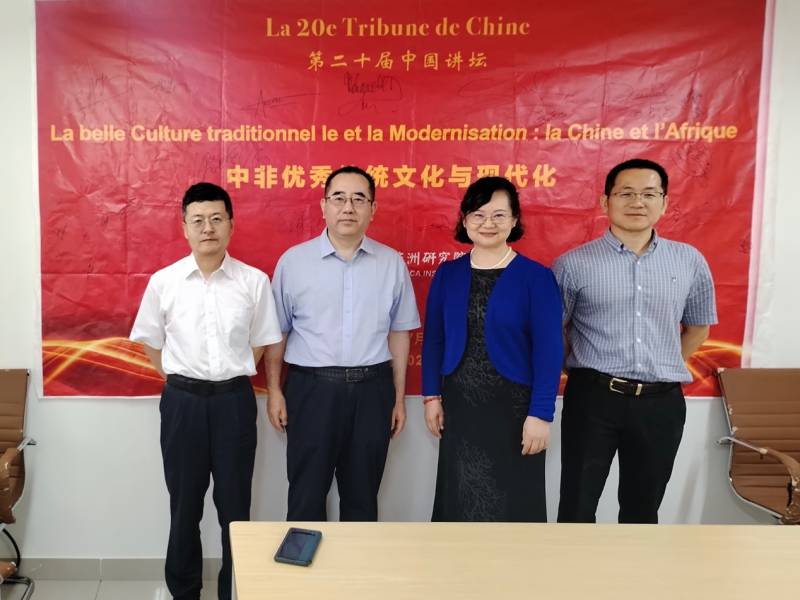
Group photo
Following the lecture, the delegation visited the Torchroad International Holdings Group and the Tourchroad Djibouti Special Economic Zone. In 2012, the Djibouti government proposed the vision of establishing a special economic zone. During President Guelleh's visit to China the same year, he met with He Liehui, Chairman of Torchroad International Holdings Group in Beijing and invited him to set up an economic zone in Djibouti. In 2014, in the presence of President Guelleh, He Liehui and Djibouti Prime Minister Abdoulkader Kamil Mohamed signed a Memorandum of Understanding (MOU) to build the Djibouti Economic Zone.
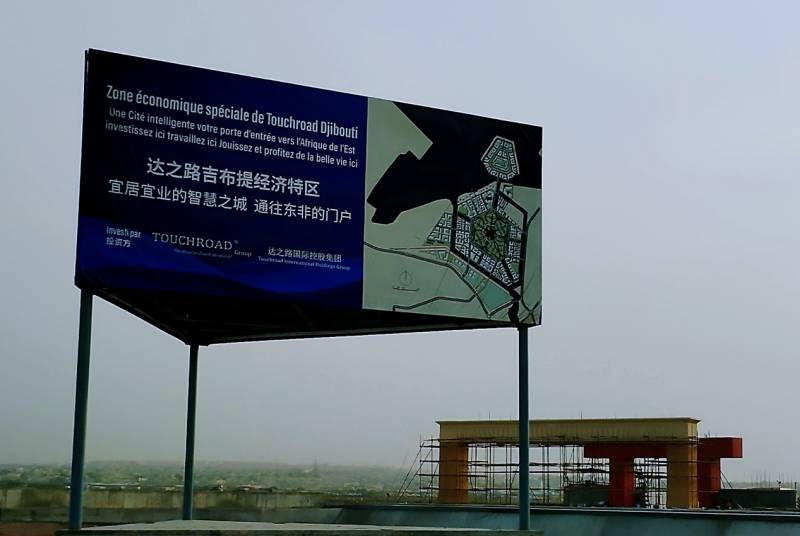
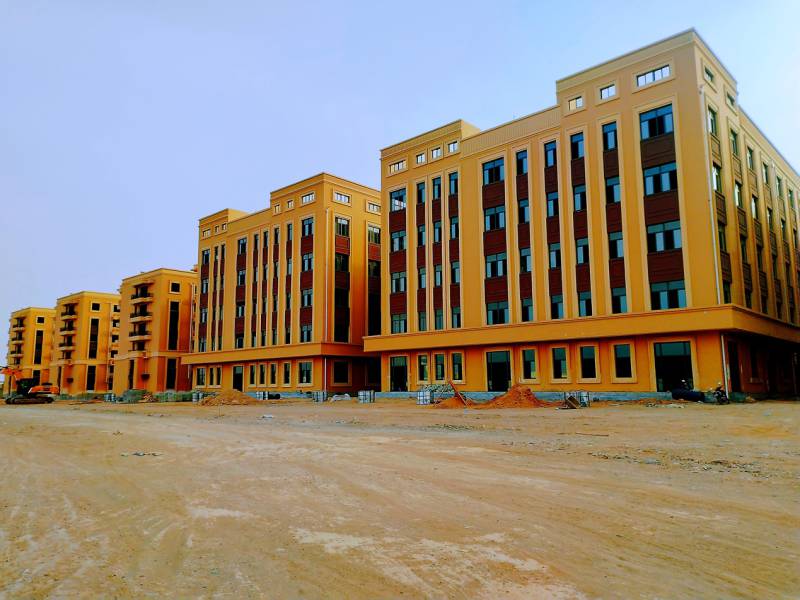
Residential buildings, office buildings and business zone in Djibouti Economic Zone
On the morning of July 1, 2024, the delegation visited the University of Djibouti (UD), and met with Souleiman Omar Hoch, director of the Africa Center of Excellence for Logistics and Transport (CEALT) hosted by UD; Gouled Abdi Miganeh, deputy director of the CEALT; and Moussa Khaireh Soubagleh, lecturer of the Faculty of Letters, Languages and Human Sciences.
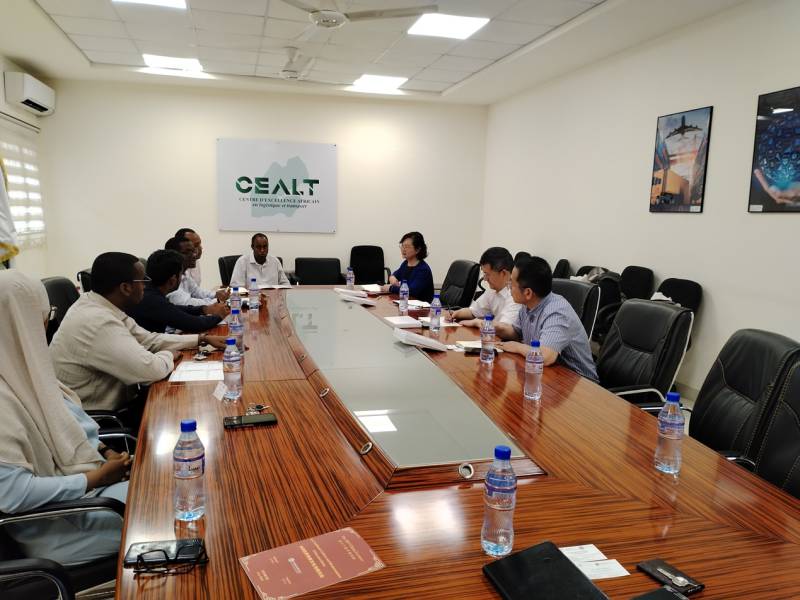
The CAI delegation members are having meeting with CEALT experts
The delegation also met with Dr. Djama Mohamed Hassan, President of the University of Djibouti (UD). According to Dr. Djama Mohamed Hassan, founded in 2006, the UD is the only higher education institution in Djibouti. It has five faculties: Faculty of Law and Economics and Management, the Faculty of Letters, Languages and Human Sciences, the Faculty of Engineering, the Faculty of Medicine, and the Faculty of Science .
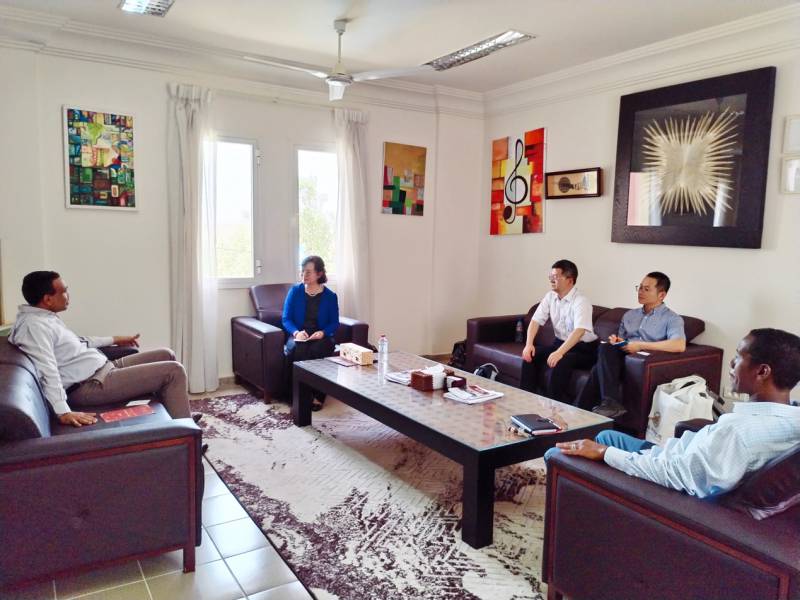
CAI delegation is having meeting with Dr. Djama Mohamed Hassan
Dr. Djama Mohamed Hassan said, as the political, economic and security relations between China and Djibouti are getting closer, the two sides should also strengthen people-to-people and cultural exchanges, with education as the focus. The UD has now in collaboration with Chinese universities such as Jilin University and Wuhan University in natural sciences and engineering. He expressed his expectation for furthering communication and cooperation with Chinese universities and research institutions in social sciences and human sciences. This could be done by sending more visiting scholars, launching students abroad programs, and jointly hosting academic conferences, he added.
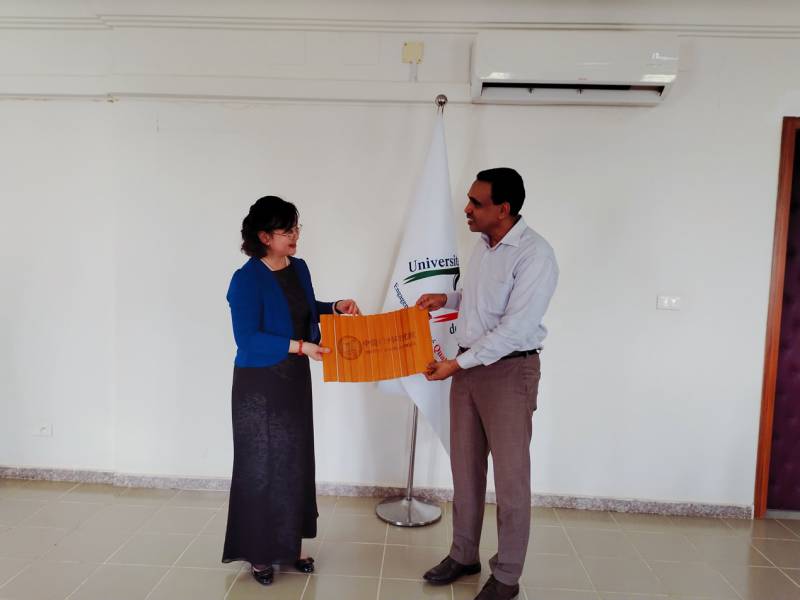
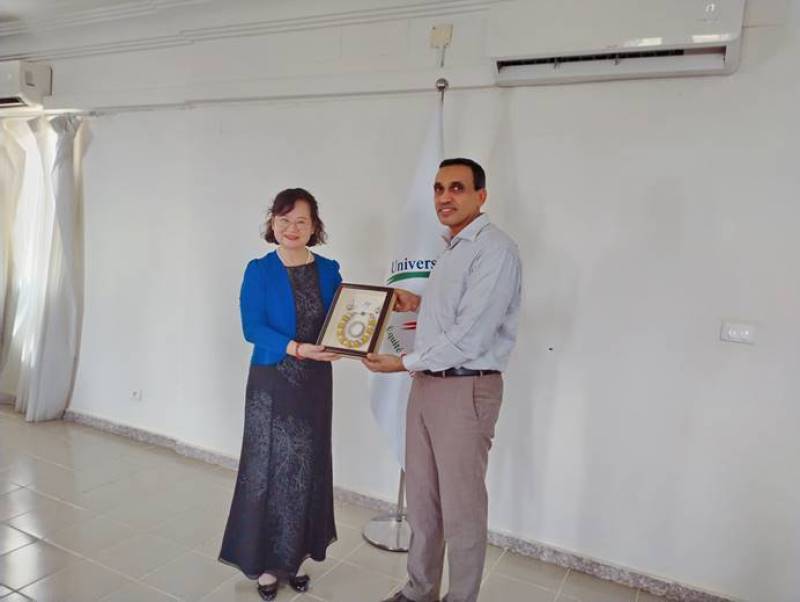
Prof. Wang Xiaoming and Dr. Djama Mohamed Hassan are exchanging gifts
